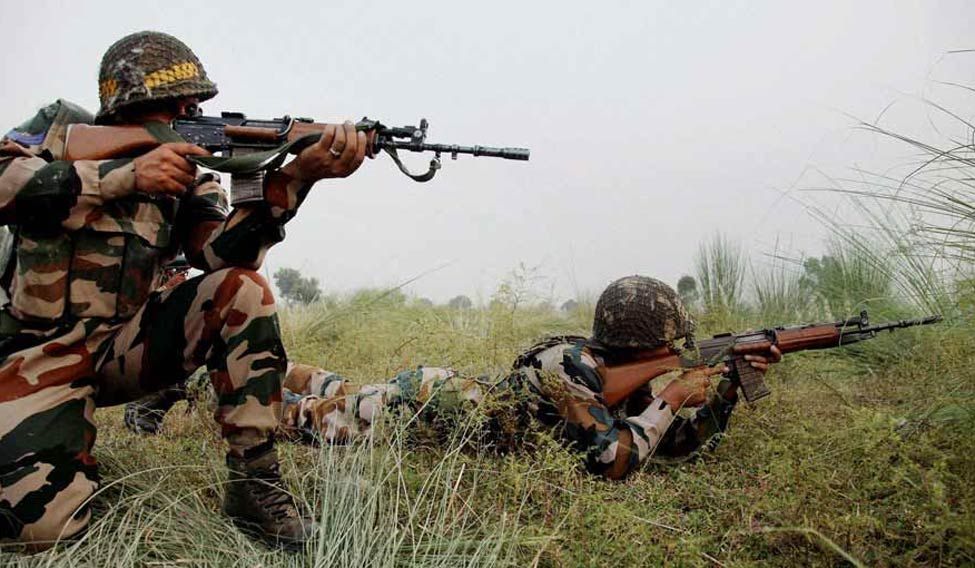Four Pakistani soldiers were martyred in result of unprovoked firing by Indian forces along Line of Control (LoC) today. The Pakistani forces retaliated and killed three Indian soldiers while several were injured, ISPR mentioned. These are the latest deaths in a continuing cycle of death and destruction that has been raging in the LoC.
According to press release by Inter Services Public Relations (ISPR), the Indian Border Forces started firing at Kotli and Jandrot Sectors along LoC. The military media wing further said that Indian forces started firing when Pakistani soldiers were working on boundary line.
An Indian Army non commissioned officer was killed in retaliatory firing by Pakistan along the Line of Control (LoC) in Jammu and Kashmir’s Rajouri district on Saturday. Before that Ceasefire violations such as artillery duels and drone crossings have become the norm along the Line of Control (LoC) despite the leadership of Pakistan Rangers and India’s Border Security Forces agreeing in November 2017 that the “spirit” of a 2003 ceasefire agreement must be revived to protect innocent lives.
These are the latest incident of attacks across the LoC. Last year, the Indian forces carried out more than 871 ceasefire violations along the (LoC) and the WB, resulting in the killing of 39 innocent civilians and injuries to 144, compared to 382 ceasefire violations in 2016, according to a Foreign Ministry tally. According to latest figures, in 2018 the Indian forces have carried out more than 70 ceasefire violations along the Line of Control and the Working Boundary.
Pakistan has maintained that India must respect the 2003 ceasefire agreement between the two neighboring countries and maintain peace on the Line of Control (LoC) and the Working Boundary. Pakistan has also urged that the Indian side should permit the United Nations Military Observers group in India and Pakistan (UNMOGIP) to play its mandated role as per the UN Security Council resolutions.
Indian aggression along the LOC has often been detrimental to peace prospects between both nations. On 8th September 2017, The General Officer Commander-in-Chief (GOC-C) of the Kashmir-based Northern Command, Lt Gen Devraj Anbu said that his forces will cross the Line of Control (LoC) and target its enemies whenever the need arises.
He warned Pakistan that it needs to stop its infiltration attempts and those that are allegedly stoking violence in Indian-occupied Kashmir. “When we want to we will be able to breach it (LoC), go across and strike when we need,” said the three-star general in Udhampur days after his Chief said that the army should prepare for a two-front war with China and Pakistan.
The ongoing clashes alongside the border have become more serious after the recent remarks of the Indian Army chief who vowed his force were ready to call Pakistan’s “nuclear bluff” and cross the border to carry out any operation if asked by the Indian government. The statement echoes largely the sentiments that led to the formulation of the “Cold Start” doctrine. The doctrine called for shallow incursions into Pakistani territory by Indian forces without breaching the threshold required for nuclear retaliation.
While India publicly denies the existence of a “Cold Start” doctrine, its desire to damage Pakistan through conventional military means without the use of nuclear weapons by any side has become more and more apparent with each passing day. The rhetoric has gotten a boost since the rise of the Hindutva fundamentalist BJP to premiership which has increasingly used the slogan of “surgical strikes” and “punish Pakistan” to stave off domestic opposition.
In the end, it can be asserted that radical Hindutva fundamentalism has mixed with prevalent Indian hegemonic designs to propel an aggressive military policy which is manifesting in the form of death and destruction along the LoC.
